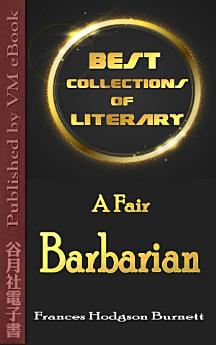A Fair Barbarian
About this ebook
"With mills and mill-hands," her ladyship announced to Mr. Laurence, the mill-owner, when chance first threw them together, "with mills and mill-hands come murder, massacre, and mob law." And she said it so loud, and with so stern an air of conviction, that the two Misses Briarton, who were of a timorous and fearful nature, dropped their buttered muffins (it was at one of the tea-parties which were Slowbridge's only dissipation), and shuddered hysterically, feeling that their fate was sealed, and that they might, any night, find three masculine mill-hands secreted under their beds, with bludgeons. But as no massacres took place, and the mill-hands were pretty regular in their habits, and even went so far as to send their children to Lady Theobald's free school, and accepted the tracts left weekly at their doors, whether they could read or not, Slowbridge gradually recovered from the shock of finding itself forced to exist in close proximity to mills, and was just settling itself to sleep--the sleep of the just--again, when, as I have said, it was shaken to its foundations.
About the author
Frances Eliza Hodgson Burnett (24 November 1849 – 29 October 1924) was a British-American novelist and playwright. She is best known for the three children's novels Little Lord Fauntleroy (published in 1885–1886), A Little Princess (1905), and The Secret Garden (1911).
Frances Eliza Hodgson was born in Cheetham, Manchester, England. After her father died in 1852, when Frances was 3 years old, the family fell on straitened circumstances and in 1865 emigrated to the United States, settling in New Market, Tennessee. There, Frances began writing to help earn money for the family, publishing stories in magazines from the age of 19. In 1870, her mother died, and in 1872 she married Swan Burnett, who became a medical doctor.







